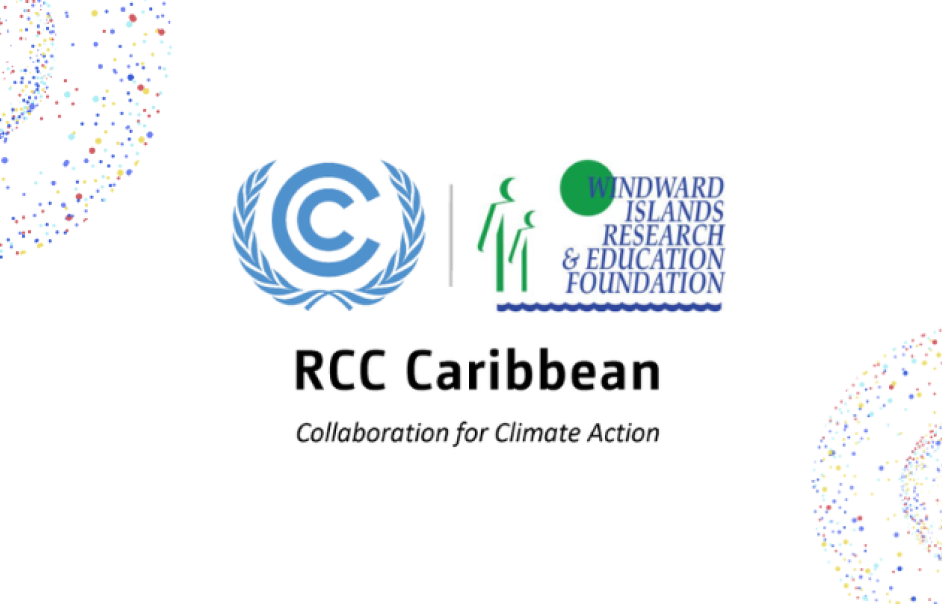Building Institutional Capacity to support the development of NDC 3.0 in Saint Vincent and the Grenadines
St Vincent and the Grenadines submitted their Intended Nationally Determined Contributions (INDC) to the UNFCCC in 2015, communicating an unconditional, economy-wide reduction in greenhouse gas (GHG) emissions of 22% compared to its business as usual (BAU) scenario by 2025[1]. Since then, the country has prepared an updated Nationally Determined Contribution (NDC), which was approved by the Cabinet in 2024. That NDC, however, was never submitted to the UNFCCC, and the country is now updating it to be submitted as the NDC 3.0.
In an effort to strengthen their institutional capacity and deliver a robust document, St Vincent and the Grenadines sought clarification to understand the Global Stocktake (GST) Guidance for the NDCs 3.0 through a request directed to the UN Climate Change Regional Collaboration Centre for the Caribbean (RCC Caribbean). Based on this request, RCC Caribbean delivered two online technical sessions.
Overview
The GST outcome agreed upon at COP28 underlined that despite overall progress on mitigation, adaptation and means of implementation and support, Parties are not yet collectively on track towards achieving the purpose of the Paris Agreement and its long-term goals, and encouraged Parties to come forward with ambitious, economy-wide emission reduction targets, covering all greenhouse gases, sectors and categories and aligned with the 1.5°C limit in their next round of NDCs. The GST invited organizations in a position to do so and the secretariat, including through its Regional Collaboration Centres (RCCs), to provide capacity-building support for the preparation and communication of the next NDCs.
The RCC Caribbean responded to this call and organized two technical webinars for representatives of the Government of St. Vincent and the Grenadines to support in understanding the GST guidance for the NDCs 3.0. The webinars provided an overview of the UNFCCC’s RCCs and the Paris Agreement and discussed the key GST guidance for NDCs 3.0.
The first webinar provided specific training on understanding the information to facilitate clarity, transparency and understanding (ICTU) requirements for NDCs 3.0. The inclusion of the ICTU elements in the NDCs was first highlighted in Article 4.8 of the Paris Agreement, which states "In communicating their nationally determined contributions, all Parties shall provide the information necessary for clarity, transparency and understanding […]". This was further emphasized in Decision 4/CMA.1.
The second webinar focused on the accounting approaches for NDC 3.0. In this case, the inclusion of the accounting approaches for NDCs was highlighted in paragraph 168 of the GST Outcome. The decision states that "…in accounting for anthropogenic emissions and removals corresponding to their nationally determined contributions, Parties shall account for their nationally determined contributions in accordance with the guidance contained in annex II to decision 4/CMA.1;’."
Additionally, these technical sessions provided an opportunity for the RCC Caribbean to discuss and identify other areas of support needs of the government of St Vincent and the Grenadines.
Importance of the training
St Vincent and the Grenadines, like other Caribbean countries, contribute negligibly to the total global greenhouse gas emissions but is highly vulnerable to the impacts of climate change such as sustained droughts, floods, more intense tropical cyclones, increased coastal erosion and changing precipitation patterns. In response, these countries are committed to global climate goals, including those outlined in the Paris Agreement.
This is a critical time as the next round of NDCs is due this year 2025, requiring new and more ambitious NDCs from countries. The NDCs are the main vehicle for countries to express their climate ambition and actions, and to align them with their national development priorities and the Sustainable Development Goals.
The government of St Vincent and the Grenadines is in a better position now to prepare their NDCs based on the training that was provided. The RCC Caribbean will continue to actively engage with Caribbean countries on their NDCs, including the hosting of knowledge sharing events, informative dialogues and workshops on relevant climate topics, and create knowledge products that can support countries in meeting their climate commitments.
More information and the available resources on the capacity building event can be accessed here.
The RCC Caribbean would like to thank Ms. Janeel Miller-Findlay, Director of the Sustainable Development Unit within the Ministry of Tourism, Civil Aviation, Sustainable Development and Culture and her staff for participating in the training. We would also like to acknowledge the contributions of the UNFCCC NDC Technical Support Unit and the Transparency Division for their contributions in the preparation of the technical sessions.
